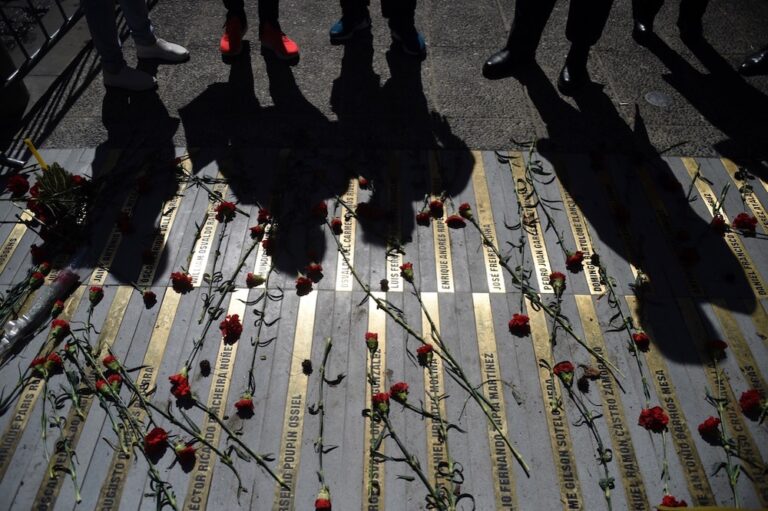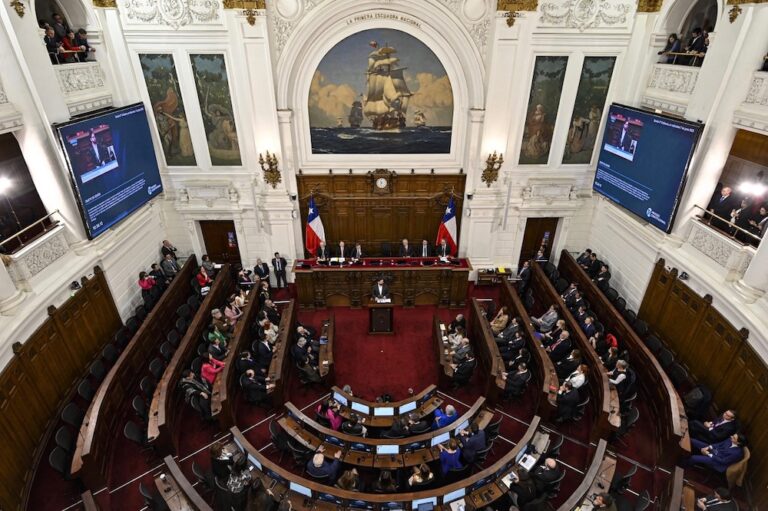"At issue once again are the abuses by the security forces, especially the carabinero militarized police," said RSF.
(RSF/IFEX) – Will 2012 be as bad as last year for Chileans working in the media, particularly news photographers and cameramen, as well as journalists and bloggers close to protest movements? The fear is well-founded and has been highlighted once again as support for the protest movement in the poor southern region of Aysén has spread, and students have once again gone on the march.
The negative trend apparent in Chile, which has fallen from 33rd to 80th out of 179 countries in the latest world press freedom index compiled by Reporters Without Borders, is unfortunately set to continue in view of the reported attacks on journalists.
“At issue once again are the abuses by the security forces, especially the carabinero militarized police,” the press freedom organization said.
“Detentions, although short in duration, are often accompanied by the destruction of equipment, amounting to censorship. Such incidents have led to the cancellation of an attempt by some journalists to hold talks with the carabineros’ command on preventive measures.
“Precise instructions must be given to the security forces, and made available publicly, and video journalists must be given a guarantee that they will be compensated for any equipment seized or destroyed.”
Ricardo Uribe, a cameraman with the Colombian news station NTN 24, was detained on March 15 in Santiago during a demonstration by students in the Parque Bustamante which was violently dispersed by carabineros.
Witnesses said the students made no attempt to hide their faces, did not build barricades or take violent action. The journalist was detained on the grounds of impeding the actions of the security forces and was kept in a carabineros’ bus, preventing him from covering the disturbances in a normal manner.
Several attacks on journalists were reported during demonstrations in Santiago in support of protests in the Aysén region. Since the start of the year, residents in Aysén have been expressing their dissatisfaction at the region’s economic isolation, high fuel prices, low minimum salaries and lack of health and medical infrastructure.
The first of these was on 24 February when Félix Madariaga, a journalist with the Corporation of Promotion and Defense of the People’s Rights (COPEDU), was detained by carabineros, who assaulted him and refused to attend to his injuries.
He was forced to seek medical attention by himself and, while he was being treated, he was questioned by carabineros who failed to ensure that a colleague or lawyer was present as required by law.
Also in Santiago, Jason Suder, an American reporter for the English-language newspaper Santiago Times, was arrested as he was photographing the interrogation of a young demonstrator, and was taken to a police barracks in the city centre.
His status as an international journalist granted him no protection from the carabineros’ brutality, as he recounts in an article in the Huffington Post.
Two more cases of injurious assault were reported in the capital during demonstrations on 7 and 8 March – those of Jorge Zúñiga San Martin, a photographer with the magazine Punto Final, and a freelance colleague Cristián González.
In Aysén itself, the regional radio station Radio Santa María reported that one of its journalists, Rodrigo Labarca, was assaulted by a carabinero on 13 March, but fortunately suffered no serious injuries.
Reporters Without Borders is also concerned about the consequences for the free flow of information of the application in Aysén of the State Security Law, enacted under the 1973-1990 dictatorship and unchanged since, and of the 1984 anti-terrorism law, used in the recent past against Chilean and foreign journalists in the southern region of Araucania.


